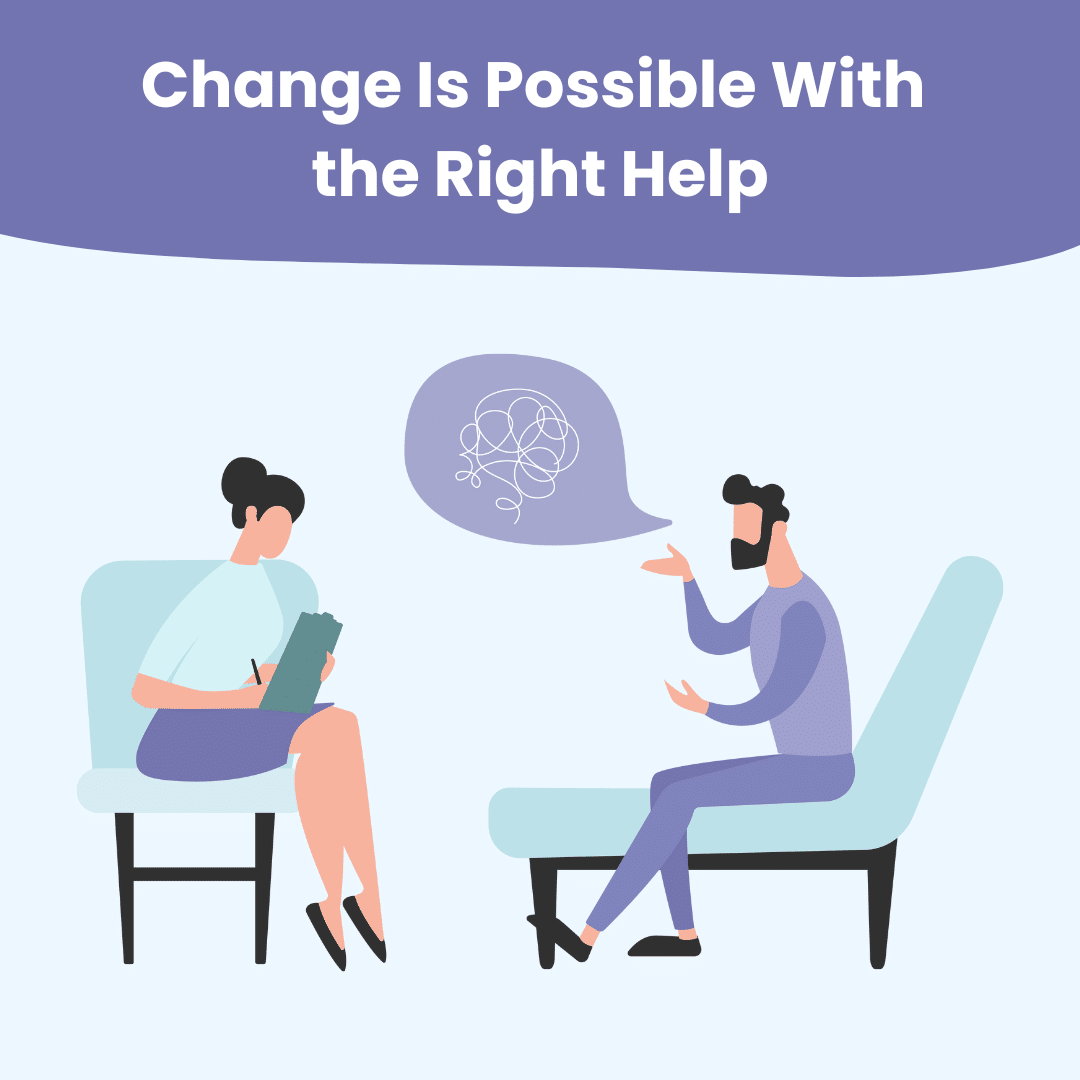
- Published on 30 June 2025
Starting a new relationship is one of the most exciting phases of life. You’re in the honeymoon period, head over heels in love, and trying all new things with your partner.
But let’s be honest: The relationship can also be confusing, nerve-wrecking, and most times, you may not know what to do or how to approach a conflict.
These conflicts can occur regardless of the type of relationship you’re in (eg long-distance, newly married, or just moved in together).
This is where couples therapy can be particularly helpful. Couples therapy is for every couple who may wish to build a strong foundation, address issues that may blow up, and learn to communicate effectively from the very beginning.
In this blog, we’ll take you through what therapy for new couples involves, reasons to start couples therapy, and address some frequently asked questions about the process.
Starting Therapy As a Couple: How It Works
If you’re starting therapy as a couple, you may wonder what exactly happens in couples therapy.
When a new couple begins relationship therapy, the goal isn’t to ‘fix’ each other. You may learn that rather than trying to change oneself, the goal of therapy is to focus on changing the relationship (ie laying the groundwork).
The couples therapist may start sessions by getting to know your:
- Communication style
- Values
- Relationship goals
- Therapy expectations
- Past relationship experiences.
These details help identify areas where you might complement or challenge each other.
The sessions are collaborative and structured around open dialogue. The therapist might guide you through exercises that highlight patterns in your interactions or help you both better understand your emotional triggers.
For example, perhaps you tend to shout or become loud during conflicts, while your partner tends to shut down and avoid communication. Exploring these habits and coping mechanisms can help prevent resentment in the future.
Couples Therapy Myth: ‘Couples Counselling is New and Just a Fad’
Couples counselling dates back to the 1920s and 1930s, so it is not new, nor is it a fad.
The purpose of any type of counselling is ultimately to help individuals create sustainable change.
In fact, research also shows that nearly 70-90% of couples benefit significantly from therapy. During sessions, you and your partner may learn scientific tools to:
- Improve communication skills
- Resolve arguments and conflicts in a healthy way
- Understand each other better
- Develop your emotional and physical intimacy
The tools you learn during couples therapy are transferred to you via great care and intend to make you self-reliant and capable of handling any future issues.
You may typically have to attend 12-14 weekly sessions to see real and lasting changes in yourself and your relationships. The duration and intensity of couples therapy also make for solid proof that it cannot be a fad.
Reasons to Start Couples Therapy
You might be thinking, ‘Do we really need couples therapy if we’re not fighting all the time?’
That’s a great question. Therapy for new couples is not only about resolving issues, but also about preventive care and growth.
During therapy, you may better understand each other, set expectations for the relationship, and learn scientific tools to handle conflicts.
Here are two signs that it might be worth exploring couples therapy sooner rather than later.

1) You Notice Controlling Behaviours
Control in a new relationship can creep in quietly and without your notice. If you’re stuck with a partner who is controlling, it can be hard to identify the signs.
For example, let’s assume you plan to go out with your friends on a trip this weekend.
You’ve booked the tickets and the rooms in advance and have also let your partner know where you will be going. However, at the last minute, your partner may say something like, ‘I’ll be so sad without you. Why are you leaving me alone?’ or ‘Can you skip this once and hang out later? I really need you here.’
Initially, these dialogues can sound romantic or perhaps even caring. However, as this continues to happen, you may feel uncomfortable and restricted.
How couples therapy helps
In couples therapy, your counsellor will help you:
- Identify signs of control or narcissism and help you differentiate them from care and love
- Recognise unhealthy patterns of interaction
- Rebuild mutual trust, respect, and freedom in the relationship
- Set boundaries that you can build and maintain
Small exercise to identify controlling behaviours
Ask yourself some simple questions:
Do I feel free to make my own choices in the relationship?
Who makes the end decisions in all aspects of my life?
How do I feel when I inform my partner?
If your answers to the above questions feel complicated or if you’re unable to come up with a straightforward response, couples therapy can help you navigate this relationship.
2) You’re Struggling to Navigate Life Changes
If you’re in a new relationship, you may struggle to navigate changes such as:
- Moving in with your partner
- Building a relationship with your partner’s friends
- Understanding and navigating the differences in cultures and rituals
- Managing a long-distance relationship
- Adjusting to demanding work schedules
The above changes are not exclusive. Sometimes, simply being in a romantic relationship can be challenging for some people. These changes can also cause unexpected stress.
During couples therapy, you can explore:
- Relationship expectations
- Social, emotional, romantic, and sexual needs
- Emotional and physical boundaries as an individual and as a couple
- Strengths and weaknesses in a relationship
Relationship therapy is a proactive way to ensure you’re on the same page as your relationship evolves.
Couples therapy exercise: ‘Our Change Map’
This exercise helps you prepare for big life changes (like moving in together, starting new jobs, or handling long-distance relationships).
Time required: 45 minutes
What you need: Paper, pens, and a calm environment
Step 1: Identify the Change (5–10 minutes)
Write down what life change you’re currently navigating. For example, ‘I’m starting a new role next month that might require late hours’ or ‘We’re planning to move to a new city.’
Then, take turns with your partner to share your reflections.
Step 2: Talk Through Emotions (10 minutes)
Now, think about the emotions. How do you feel about this change? Use ‘I feel…’ statements. For example, ‘I feel excited about the move, but also scared we’ll drift apart if we don’t make time for each other.’
Listen without interrupting, and then swap roles.
Step 3: Map the Impacts (10 minutes)
Together, draw a simple chart or mind map. Put the change in the centre and branch out to areas it may affect (eg communication, time spent together, finances, roles/responsibilities, mental/emotional load).
Circle any areas where you both feel uncertain or uneasy.
Step 4: Make a Plan (10 minutes)
Brainstorm realistic ways you can support each other through this change. For example, ‘Let’s set aside 30 minutes each Sunday to check in’ or ‘We’ll both get alone time, especially when things feel intense.’
Step 5: Schedule a Follow-Up (2–5 minutes)
Pick a date 2–3 weeks later to revisit how you’re both feeling. Continue to adjust or update the plan as your life and goals evolve.
Frequently Asked Questions
1) What is realistic in a relationship?
On the one hand, being realistic in a relationship means having clear and honest expectations about each other.
For example, it’s fair to expect things like trust, respect, and open communication. It also means talking about boundaries early on, like what you’re okay with, what you’re not okay with, and what counts as a dealbreaker.
You might ask each other:
- What does cheating mean to you?
- Are there behaviours you feel are totally off-limits?
- What do you need to feel safe and respected in this relationship?
These kinds of conversations help build a realistic expectation.
On the other hand, some expectations can be a bit unrealistic. For instance, expecting your partner to magically know what you need without you saying anything (ie mind reading). Or thinking that they should always agree with you or see the world the same way.

2) What are some red flags in a relationship?
A sign that a relationship may be unhealthy is when couples experience a power imbalance.
For example, one person may usually comply with the orders of their partner (eg ‘Don’t leave the house after 6pm) out of fear of the consequences. Similarly, controlling behaviour can also indicate a red flag in a relationship. Some other examples include:
- Criticism or letting down a partner
- Avoiding someone or not showing affection as a punishment
- Jealousy
- Avoiding difficult conversations
- A lack of accountability
Identifying red flags early can help you decide what to address, what to accept, and what might be a dealbreaker. Couples therapy can help unpack these red flags safely.
3) What makes a couple strong? What are the 5 most important things in a relationship?
Strong couples usually have a few key things in place:
- Trust
- Communication
- Respect
- Emotional Support
- Shared Values
You don’t have to be perfectly aligned, but knowing where you differ (and how to manage it) is key. Relationship therapy gives you the tools to do just that.
4) What issues are addressed during relationship therapy?
Couples therapists can help you manage many issues. Some include:
- Conflicts or arguments
- Disagreements in financial matters
- Struggling to navigate different sexual needs
- Lack of boundaries
- Anger issues
- Common mental health issues that may affect the relationship
- Personal or work-related stress
No issue is too small or too big. Even ‘we argue about what to eat for dinner’ can reveal deeper issues, like decision fatigue or imbalance in emotional labour.
Conclusion
Therapy for new couples can help you:
- Understand each other’s emotional triggers
- Resolve conflicts
- Better adjust to each other’s lives
- Build a happy relationship
Investing time and energy early in your relationship can be a great way to prevent future issues.
If you’re curious about couples therapy, book a session with our expert couples Therapists in Australia.

Related Articles
Latest Articles
Recent Posts
- A Therapist’s Guide to Setting Boundaries with Parents
- Anger Management in Singapore: Top 6 Benefits
- Individual vs Group Counselling in Singapore: What’s Right for You?
- Thinking of Switching Your Therapist in Singapore? Read This First
- How Counselling in Singapore Can Help You Overcome Dating Anxiety


